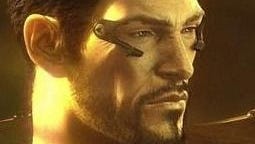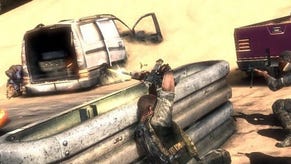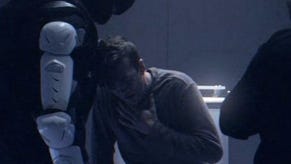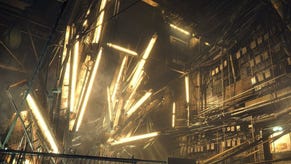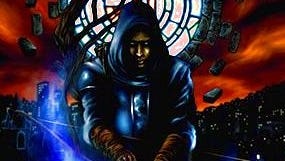Eidos Montreal's Jean-Fran?ois Dugas
Revolutionary guard.
Absolutely. You can go left or right, there are streets and buildings to explore. There are people to meet who have side-quests. You can find weapon dealers that are hidden here and there. You can expand your experience outside of the critical path of mission objectives. I actually think the maps that we have are a little bit bigger than the one's we're talking about in Deus Ex 1.
When we started to brainstorm about this guy being augmented, we wanted him to have some sort of weapon concealed in the arms. At the time Assassin's Creed II didn't exist, and they only had a small blade in the first one. It was somewhat remotely related, but not really. But we thought it was cool with our character, and moved forward.
Then Assassin's Creed II appeared with the two blades, and now you can see a correlation with ours more strongly, but that's what we were doing and we continued to do it.
With the takedowns you can either kill people or knock them unconscious, so the blades are a visual cue that you're killing them. And we wanted to go for the cool aspect as well.
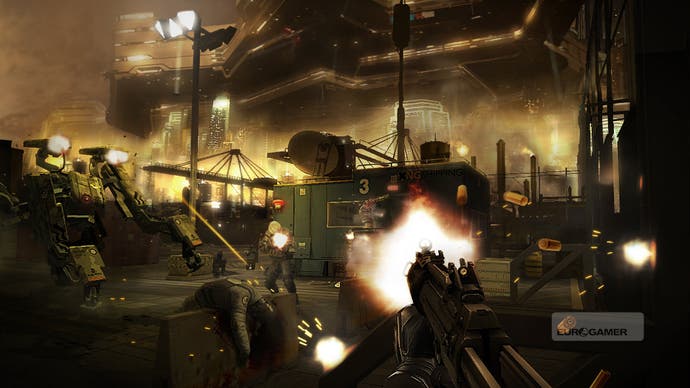
We did that somewhat on purpose, we don't want killing in the game to be [giddy, excited voice] "Hey I just killed a bunch of people!" We want players to play Adam Jensen in the way they want to see him.
By making those takedowns violent it's not something you do lightly - some players will do it, others will think that they're not that kind of guy. We didn't want to portray violence in a glorified way.
For instance when you go up to a passer-by, point your gun at him and he cowers. For us it's more like, "You have a gun. You carry a responsibility. You can fire it, but there are consequences."
You're not just going in with a rocket launcher and having people not notice. People will say things like, "You have a gun! Remove it from my face!"
We didn't go into it thinking, 'That doesn't work anymore, cut it out!' It was more like identifying what we thought was really strong, and identifying what we thought was less strong. Then making sure we were taking the strong stuff and condensing it, while working out what we'd do differently with the content that wasn't so great.
At the beginning, when we were first developing Human Revolution, we had the augmentations and skills separate - like in the first game. Later on we realised that we wanted the augmentations to be centre stage of the experience and that the skills were starting to conflict with that. So we decided that they should be put back into the augmentations; so they don't exist anymore, they exist in augmentations.
Deus Ex: Invisible War actually already did the same thing, so basically we had to go full circle to understand that and do it ourselves.
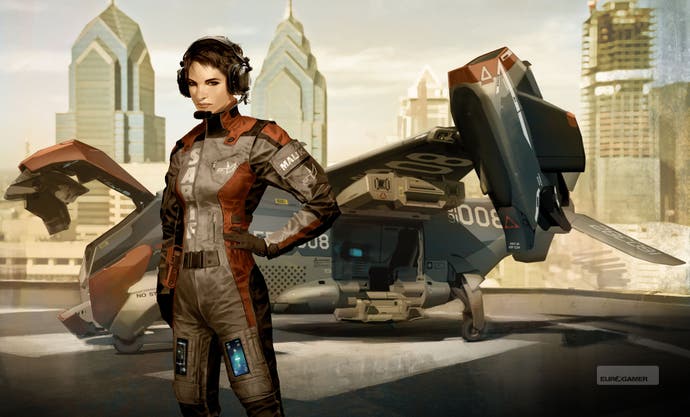
You'll have enough money to buy all the basic augmentations if you want, but when it comes to the XP points that you use to unlock the abilities within a given augmentation - you won't have enough to max them all out.
Plus if you choose to spend money on cool weapons that you won't find lying around in the world, then that's less money to spend on augmentation.
I don't want to spoil anything, what did you make of this 'Tong' guy?
Yes, if you're new to the Deus Ex world it's entirely standalone. But here and there there are flavours of the old game. Even in this E3 demo there are three or four Easter eggs. Tong, the references to the Triads, a familiar string of music with a bad guy and the mention of Versalife.
[Baffled silence] Erm. Okay?

